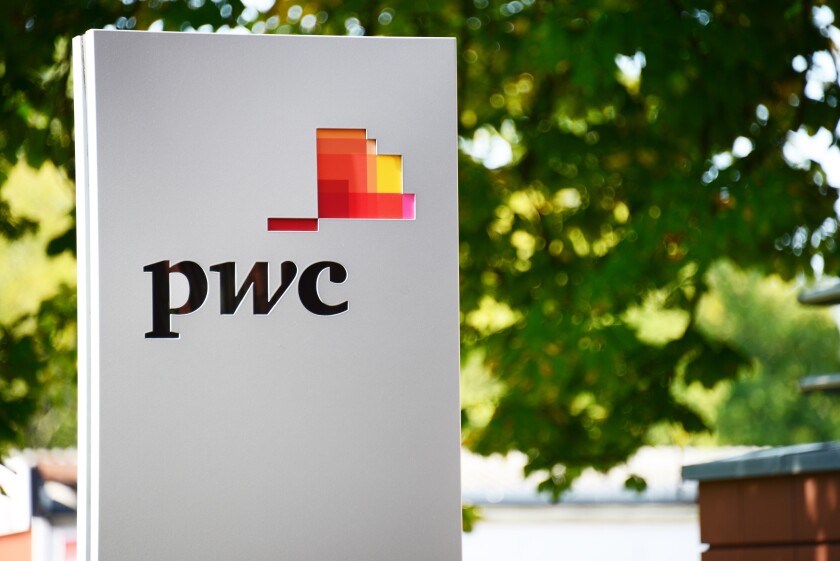The New South Wales government banned PwC Australia from public sector contracts for tax services yesterday, June 15. This ban will last for three months while investigations into the tax leaks scandal are underway.
PwC Australia will have to disclose whether any of its staff working with the state government breached confidentiality agreements, according to the Australian Financial Review. However, the New South Wales government is also concerned about the cost of consultancy fees.
At the same time, the Australian federal government has imposed a shadow ban on new operations with PwC – across all departments – since the tax leaks scandal broke earlier this year, the Financial Times reported.
The professional services industry is under increasing scrutiny in Australia since the news broke that PwC partner Peter-John Collins had shared confidential information with colleagues.
Swiss voters to decide on minimum corporate tax rate
Swiss voters will head to the voting booths on Sunday, June 18, to decide whether the country should adopt a minimum corporate tax rate of 15%.
Around 73% of Swiss voters are expected to support the country’s commitment to the OECD’s pillar two proposal for a minimum rate, reported Reuters on Tuesday, June 13. The average corporate tax in Switzerland, which is estimated at 11%, would be increased by a federal minimum effective rate of 15% should the vote pass.
Under the decentralised Swiss political model, each of the 26 constitutive cantons can set its own corporate tax rate. However, if the vote favours the minimum rate, the government will impose a top-up tax on existing cantonal rates.
The minimum rate is projected to bring an additional CHf2.5 billion ($2.76 billion) to the country’s budget. A quarter of the tax revenue will be earmarked for the federal government. Meanwhile, the remaining three-quarters will be distributed among the cantons.
EY CEO announces retirement after ‘Project Everest’ failure
EY CEO Carmine Di Sibio announced his plan to step down a year early and retire in June 2024, reported the Wall Street Journal on Tuesday, June 13.
Di Sibio was the mastermind behind the ‘Project Everest’ plan to separate EY’s consulting and audit operations. It would have created two new companies with tax services divided between them.
EY spent over $600 million on preparations for the separation, but the plan never came to fruition. Partners were divided over the details, especially on how to divide revenue and services. In the end, Project Everest was cancelled in April 2023, amid reports of infighting.
In November 2022, EY extended Di Sibio’s term by two years giving him until June 2025 to serve as CEO. However, Di Sibio has decided to step down early and retire from the firm. He was appointed global chair and chief executive officer in 2019.
The ‘big four’ firm has said it expects to report global revenue of $50 billion this year – a 10% increase since June 2022, according to the WSJ. Under Di Sibio, EY has seen its global revenue increase by over 34% since 2020.
Russia govt imposes windfall tax on big business
The Russian government has confirmed its plans to implement a one-off tax measure targeting large corporations in a move to help cover the costs of its war with Ukraine.
A draft proposal outlining the levy was introduced on Tuesday, June 13, according to a report from the Financial Times. This policy would impose a tax of up to 10% on all companies with annual profits exceeding ₽1 billion ($11.3 million) since 2021.
The windfall tax is expected to raise an estimated ₽300 billion for the Russian budget. However, the measure looks like a drop in the ocean for the country’s growing national deficit, which is estimated at ₽3.4 trillion as of the first half of 2023.
First Deputy Prime Minister Andrei Belousov claimed that “the idea of this [windfall] tax came from business, not the state”.
The government’s bid to raise tax revenue from large companies might not achieve the desired results. Calls for a similar windfall tax on the Russian business community in 2018 fell largely on deaf ears.
Brazil’s Supreme Court sides with govt in $24bn tax dispute
The Supreme Court of Brazil ruled in favour of the country’s finance ministry on Monday, June 12, in a case involving the method of calculating tax duties.
Brazil’s business community, represented by banks, brokers and insurance companies, argued that the federal levy applied solely to revenues from the sale of goods and services.
However, the court disagreed and ruled that the tax covers gross income, including financial revenue.
As a result, the collection of outstanding taxes from financial enterprises for the period between 2000 and 2014 could bring an additional R$115 billion ($24 billion) to the budget, reported Reuters on June 12.
The total sum of tax arrears is disputed. According to the banking federation Febraban, additional tax obligations for the 14-year period amount to R$12 billion, representing a fraction of the R$115 billion figure sought by the Ministry of Finance.
Apache halts North Sea drilling over UK windfall tax
Oilfield operator Apache announced on Friday, June 9, that it is ending all drilling in the North Sea following the UK decision to revise its windfall tax regime, reported the FT.
The UK government has introduced a price floor to the energy profits levy to boost North Sea investment since the headline tax rate increased to 75%. However, it was too little too late for Apache.
Apache has drilled in the Forties oilfield for 20 years. Forties is one of the largest and oldest oil fields in the region, producing 50,000 barrels of oil a day. It would need to produce crude oil at below $71.40 per barrel to reduce its tax rate.
Norwegian state oil company Equinor and its UK partner Ithaca Energy may decide to follow Apache’s example. The two businesses could choose to cancel their Rosebank project over the cost of operating in the North Sea.
Next week in ITR
ITR is keeping a close eye on the Swiss referendum on pillar two and the prospects for public country-by-country reporting in Australia, as well as new tax technology projects. We will also be publishing a timeline of the PwC Australia tax leaks scandal from the summer edition of ITR magazine.
Readers can expect these stories and plenty more next week. Don’t miss out on the key developments. Sign up for a free trial to ITR.












